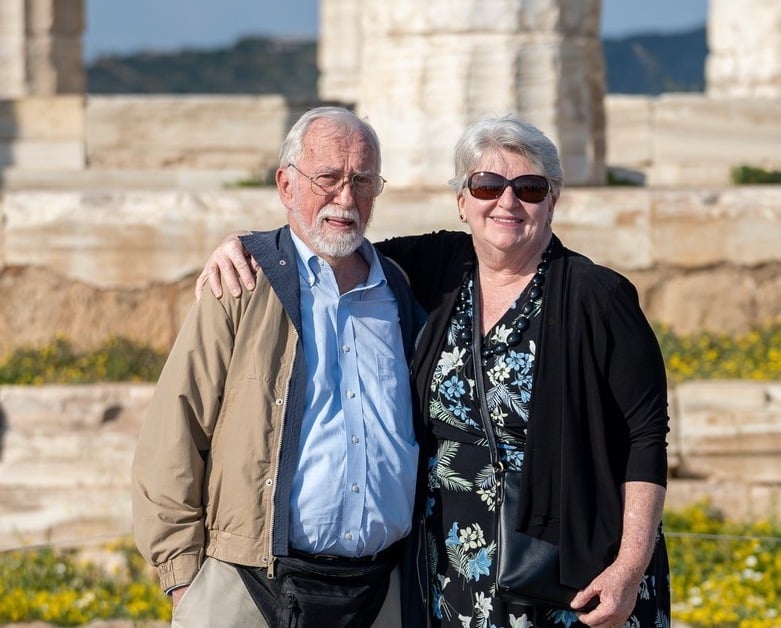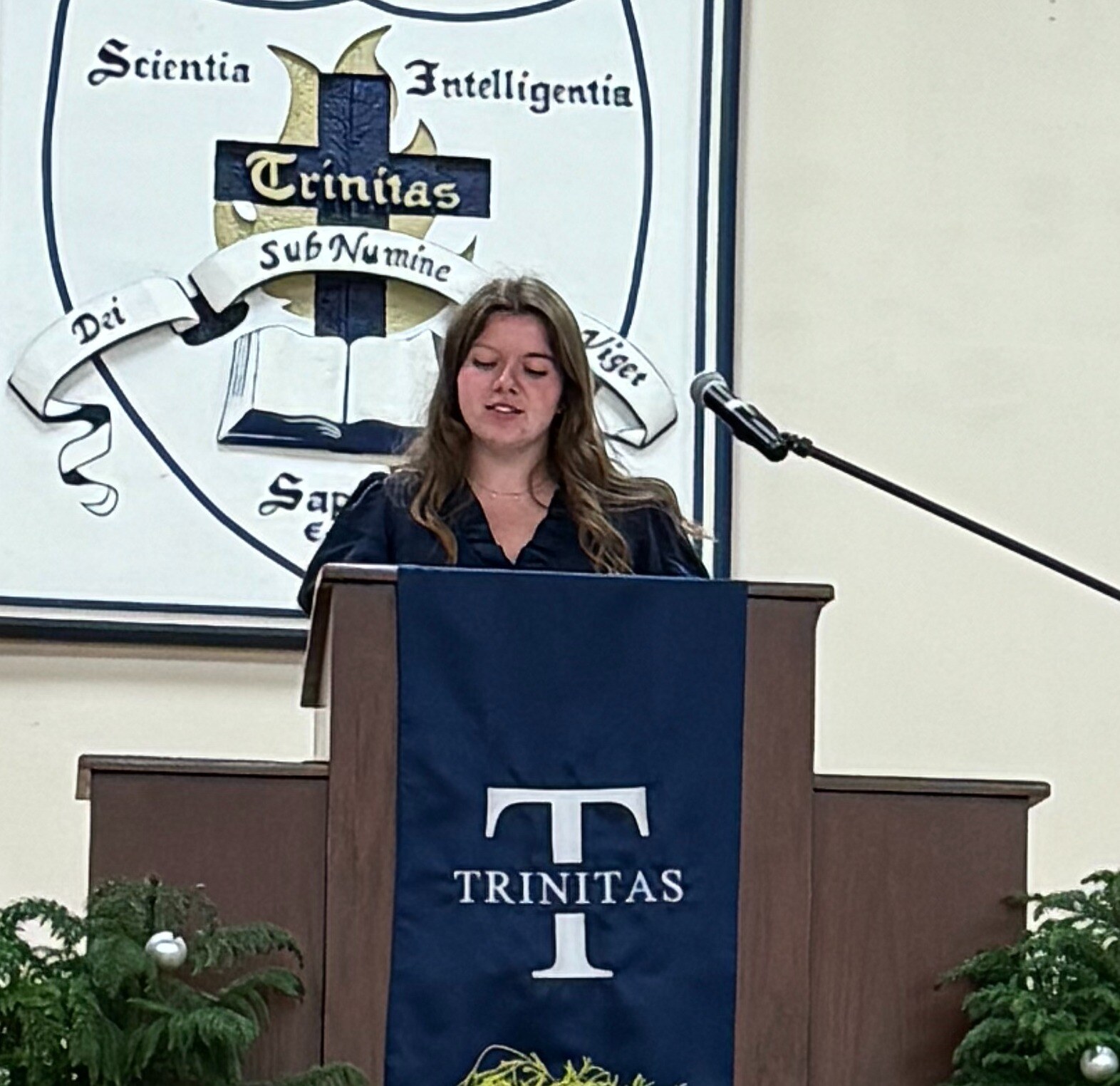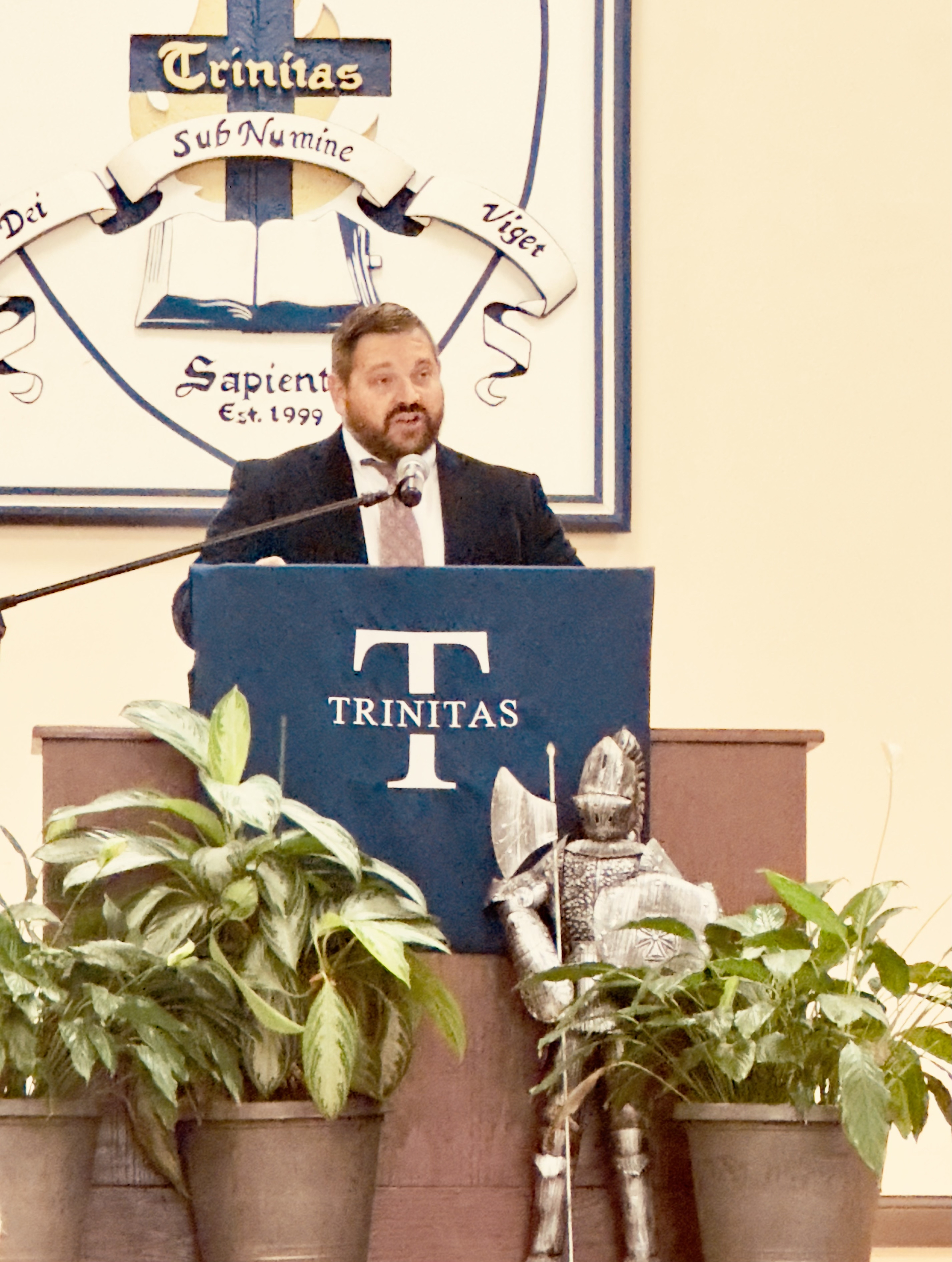I’ve been thinking recently about how impressionable our children and students are. A verse often directed toward parents and teachers is Luke 6:40 “A disciple is not above his teacher, but everyone who is perfectly trained will be like his teacher.” Be honest. Does that frighten you as badly as it does me?
I met a student recently who was about to graduate high school and the first two years of college all in the same day! Not only is that an impressive accomplishment, but also it is an accomplishment that has become increasingly common over the past decade or so. The rise of dual enrollment opportunities that allow high school students to take college courses has made it possible for thousands of American teens to graduate high school with an AA degree from a local college or university. Again, that is a pretty amazing accomplishment!
Topics: Blog Posts, Parenting, Classical Education, True Education, Admissions, Virtue
There is a passage from Ray Bradbury’s Dandelion Wine that I reflect upon at the end of every Summer. It comes as the main characters, two brothers of Logic school age, are realizing that this season of their life is coming to an end:
And they left the mellow light of the dandelion wine and went upstairs to carry out the last few rituals of summer, for they felt that now the final day, the final night had come. As the day grew late they realized that for two or three nights now, porches had emptied early of their inhabitants . . . and surely when they abandoned the conflict the war with Time was really done, there was nothing for it but that humans also forsake the battleground. (p. 281)
Summer has always felt like that to me, like “a war with Time,” where every moment is grasped tighter. This is why I always tell students that Summers are Sacred. It is a kind of Sabbath, a season when we labor through rest.
Topics: Blog Posts, Parenting, Parent Involvement, Reading, Virtue
This week we celebrated the retirement of one of Trinitas’s most beloved teachers of all time. After twenty years of teaching in the Grammar School, Mrs. Wendy Phillips is retiring from that role. Many alumni, parents of alumni, students, and faculty members gathered for a time of remembering, gift-giving, and neck-hugging to send Mrs. Phillips out in style.
Topics: Blog Posts, School Life, Classical Education, Christian Education, True Education, Virtue
The following is adapted from a faculty address delivered by Miss Cate Price at the induction of new members into the National Honors Society on December 13, 2024, at Trinitas Christian School.
Singling yourself out for honor is a risky business. Admission into the National Honor Society is a process that revolves around paradox. We ask that you be servant-minded individuals, who model a humility that does not sound your own praise to the heavens. And yet, on the same application page, I ask you to tell me why you deserve this honor. You had to ask someone to write you a letter of recommendation, in which they detail all the things about you that make you so great. Perhaps, some of you wondered if the application was a trick. Would it be better to turn it in blank? Obviously, you all chose to answer the questions (which was an appropriate thing to do by the way), but, in deciding to turn in the application and ask for admission into this society, you have essentially put a target on your back. You have come forward and asked for distinction.
Now, I am not saying that you should not have come forward for this distinction, but I do want to be forthcoming to you and to tell you what exactly happens next.
Topics: Blog Posts, School Life, Classical Education, Christian Education, True Education, College Admissions, Christian Living, Virtue
 One distinguishing mark of God’s people should be thankfulness. Over and over again in Scripture we are exhorted to be thankful. James, our Lord’s brother, says, “Every good gift and every perfect gift is from above.” God has given us all that we have, all that we need, so it is only right that we should be eternally grateful to the One who has given us every good and every perfect gift, indeed, every thing.
One distinguishing mark of God’s people should be thankfulness. Over and over again in Scripture we are exhorted to be thankful. James, our Lord’s brother, says, “Every good gift and every perfect gift is from above.” God has given us all that we have, all that we need, so it is only right that we should be eternally grateful to the One who has given us every good and every perfect gift, indeed, every thing.
Topics: Blog Posts, Parenting, Christian Education, Christian Living, Parent Involvement, Virtue
The following is adapted from a faculty address delivered at Convocation by Mr. Varela on August 16, 2024, at Trinitas Christian School.
Our theme for this year at Trinitas is love. Of course, love is a central theme in many of the stories you have read, and it will be a continual theme in your studies because it is a constant in the world God designed. Jane Austen writes of a love that grows over time between Mr. Darcy and Elizabeth Bennett in Pride and Prejudice. In Little Women, Louis May Alcott gives the reader the heartbreak of unrequited love between Laurie Laurence and Jo March. Romeo and Juliet tells of a tragic love, courtesy of Mr. Shakespeare. These are all examples of romantic love. Since dating isn’t a part of our school culture, let’s lay that kind of love aside for now and think about love as it pertains to you, dear senior, and even you, seventh graders.
Topics: Blog Posts, School Life, Christian Living, Virtue
The following is adapted from an address delivered at Parent Orientation by Mr. Cowart on August 14, 2024, at Trinitas Christian School.
We gather together this evening for orientation. To be oriented. But what does that mean? Perhaps you came here this evening, expecting to hear from your child’s teachers about school supplies, textbooks, class schedules, homework procedures and the like. And, yes, we will get to all of that. But before we do, I want to take a few minutes to speak to you about a different sort of orientation. In the English language, the word “oriented” has four primary uses. It can connote interest in that someone is “oriented” toward a particular thing or activity. Or it can mean designed for, like, for instance, if an industry is “oriented” toward a particular market. Frequently “oriented” is used in terms of adjusting to one’s circumstances or surroundings as we do when we visit a foreign city or country. But tonight, I want to use “orient” in the sense of positioning oneself in relation to a fixed point. As a sailor of old would orient himself by the north star, I want to challenge all of us tonight to orient our school in the coming academic year by the fixed position of the Christian virtues of hospitality and healing.
Topics: Blog Posts, School Life, Christian Living, Virtue









